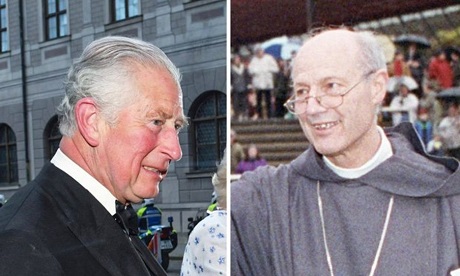The Church of England put its reputation above the needs of sexual abuse victims, UK’s Independent Inquiry into Child Sexual Abuse (IICSA) has found.
The IICSA says there was a serious failure of leadership by the former Archbishop of Canterbury George Carey (1991-2002) in the church’s handling of the case of a bishop who eventually went to prison, an official inquiry has concluded.
It also found that Prince Charles and other members of the establishment were misguided in their expressions of support of Peter Ball as he battled the accusations.
Ball, a former bishop, was jailed in 2015, more than 20 years after allegations were made against him.
The allegations were mainly ignored or downplayed by the church.
He had been cautioned by the police in 1993 and resigned as bishop at that time.
However, he was allowed to continue officiating in the church.
The IICSA’s 250-page report says Ball “seemed to relish contact with prominent and influential people”.
He “sought to use his relationship with His Royal Highness the Prince of Wales to further his campaign to return to unrestricted ministry”.
The prince and his private secretary spoke about Ball to Carey and arranged for the Duchy of Cornwall to buy a property he could rent after he resigned as a bishop.
The prince had been “misguided” and his actions “could have been interpreted as expressions of support for Peter Ball and, given the Prince of Wales’s future role within the Church of England, had the potential to influence the actions of the church”, the report says.
Prince Charles says it’s a “deep regret” he was “deceived” by Ball in the course of their long friendship, which included sending money to him and Ball speaking at the Duchess of Cornwall’s father’s funeral.
The report also notes Carey showed compassion to Ball that was not extended to Ball’s victims. It says Carey displayed overt support for Ball’s innocence despite having no justification.
Furthermore, the report says the church’s response to allegations of Ball’s abuse and to others in the diocese of Chichester was marked by secrecy, prevarication and avoidance of reporting alleged crimes.
Disclosures of abuse were handled inadequately by the church, and responses failed to display an appropriate level of urgency or appreciation of the seriousness of allegations made.
Source
Source
Additional reading
News category: World.




